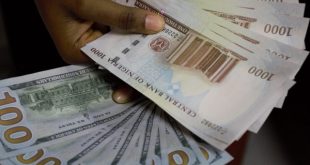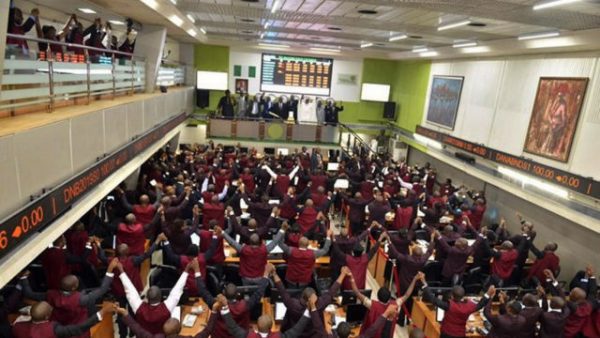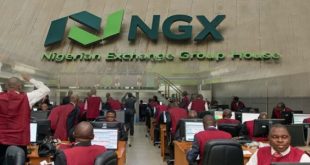
Desirous of stimulating financial market liquidity and spur economic growth, the Central Bank of Nigeria’s (CBN’s) monetary policy committee (MPC) on Tuesday harmonised both the private sector and public sector cash reserve requirements (CRR) at 31 per cent.
Previously, while the private sector CRR was at 20 per cent, the CRR on public sector funds was at 75 per cent. The latest MPC decision means that both CRR have been unified at 31 per cent.

Some economists and financial market operators anticipate that the MPC decision would help inject some liquidity back into the banking system, even as they noted that banks that are more reliant on public sector deposits would be the key beneficiaries of this additional injection of liquidity.
Addressing journalists at the end of the 244th MPC meeting in Abuja, the CBN Governor, Mr. Godwin Ifeanyi Emefiele, explained that the 31 per cent CRR is just a composite rate.

Emefiele said the action would enable the central bank achieve the efficacy of the CRR rate regime.
He said the MPC members considered that the current discriminatory CRR on public and private sector deposits had not only constrained the policy space but could inspire moral hazard by private market participants.
Consequently, he said they noted that while additional tightening measures might not be appropriate now to avoid overheating the economy, the harmonisation of the CRR was imperative in order to curb abuses and improve the efficacy of monetary policy.
“What we’ve done is to just have a composite rate. So there’s no need for us to have CRR for both private and public sector deposits. The 31 per cent is just a composite rate, which just brings it together and there’s no need for anybody to continue to wonder if they are taking CRR based on public sector or on private sector,” he said.
However, the committee retained the monetary policy rate (MPR) at 13 per cent with a corridor of +/- 200 basis points around the mid-point and also retained the liquidity ratio at 30 per cent.
The CBN governor added: “The committee noted the salutary effects of the successful conduct of the 2015 general election on the macroeconomic environment. The committee expressed optimism that the confidence and goodwill arising from the successful elections would stem the spate of capital reversal, reduce pressure in the foreign exchange market and stabilise the financial markets in the short to medium term.
“A combination of the renewed confidence and recent administrative measures around the foreign exchange market have eased pressure on the naira, resulting in relative stability in all segments of the foreign exchange market.
“The committee was concerned about the creeping headline inflation since January 2015 but noted that the causal factors were largely transient and outside the purview of monetary policy.
“Furthermore, the significant rising trend in credit to government was regarded as potential headwinds to growth with negative spillovers to the already elevated lending rates, credit to the private sector and aggregate domestic investment including inflationary pressures.The committee expressed deep concern over the lacklustre performance of the external sector arising from a number of significant global shocks.”
Speaking further, Emefiele pointed out that the continued glut in crude oil supplies amidst softening prices, anchored by sluggish global output expansion could further threaten foreign exchange earnings and accretion to external reserves over a much longer period.
He noted that a near-term rally in oil prices was further undermined by the diminishing market power of the Organisation of Petroleum Exporting Countries (OPEC).
“In the light of these developments, therefore, the committee stressed the need for proactive measures to protect the reserve buffer to safeguard the value of the domestic currency and engender overall stability of the banking system. It was, however, noted that monetary policy is gradually approaching the limits of tightening and would, therefore, require complementary fiscal and structural policies,” he added.
Responding to questions from journalists on the insinuation that the central bank had restricted forex transactions, he said: “Let me say that there isn’t really any forex restriction. What we’ve done based on what had happened in the market in the last couple of months is to eliminate the activities of round trippers or people who are front-loading the foreign exchange demand and this has culminated in a couple of policy circulars that were released by the CBN to Nigerian banks about the way they should operate in the foreign exchange market.
“Some of those measures, as I keep saying were because of the current situation which we found ourselves, and the vulnerabilities we have been exposed to as a result of the drop in crude prices, we would continue to monitor some of those policies that were put in place and as we see that things are moderating and things are getting better-naturally what we would do is to revisit them, review them so the market can operate even better than it is right now.”
Speaking in an interview with the media, an Executive Director at Diamond Bank Plc, Mr. Abdulrahman Yinusa, said the harmonisation of the CRR would help in simplifying cash reserve requirement computation by banks.
He however argued that the monetary policy action would “discourage private sector initiative because it doesn’t matter again whether it is private or public sector fund”.
On her part, the Head of Research/Chief Economist Africa at Standard Chartered Bank, Razia Khan, argued that the MPC decision would result in “an eventual tightening, the immediate impact on market liquidity will depend on the ratio of private sector to public sector deposits in the Nigerian banking system”.
“Our calculations – based on data available from February, suggests a rough 73:27 ratio of private sector deposits to public sector deposits. If this still holds true, (and a lot has changed since February) we expect to see the injection of some liquidity back into the banking system. Banks that are more reliant on public sector deposits will be the key beneficiaries of this additional injection of liquidity,” Khan added.
Also, the Chief Executive Officer, Financial Derivatives Limited, Mr. Bismarck Rwane, said the MPC members acknowledged that they had reached the peak of its monetary policy tightening.
He urged the fiscal authorities, especially the incoming government, to initiate policies that would engender job creation and inclusive growth necessary to complement the monetary policy stance.
Similarly, the Executive Director of Sterling Bank Plc, Abubakar Suleiman, said the process of managing the cash reserves ratio previously was very confusing, adding that a unified rate makes a lot sense. He described the move as a tactical easing.
He noted that the central bank had done a lot in protecting forex reserves so as to encourage foreign direct investments.
 MMS PLUS NG – Maritime, Aviation, Business, Oil and Gas News Online Newspaper with coverage in Maritime, Oil and Gas, Aviation, Power and Energy as well as Financial News
MMS PLUS NG – Maritime, Aviation, Business, Oil and Gas News Online Newspaper with coverage in Maritime, Oil and Gas, Aviation, Power and Energy as well as Financial News









